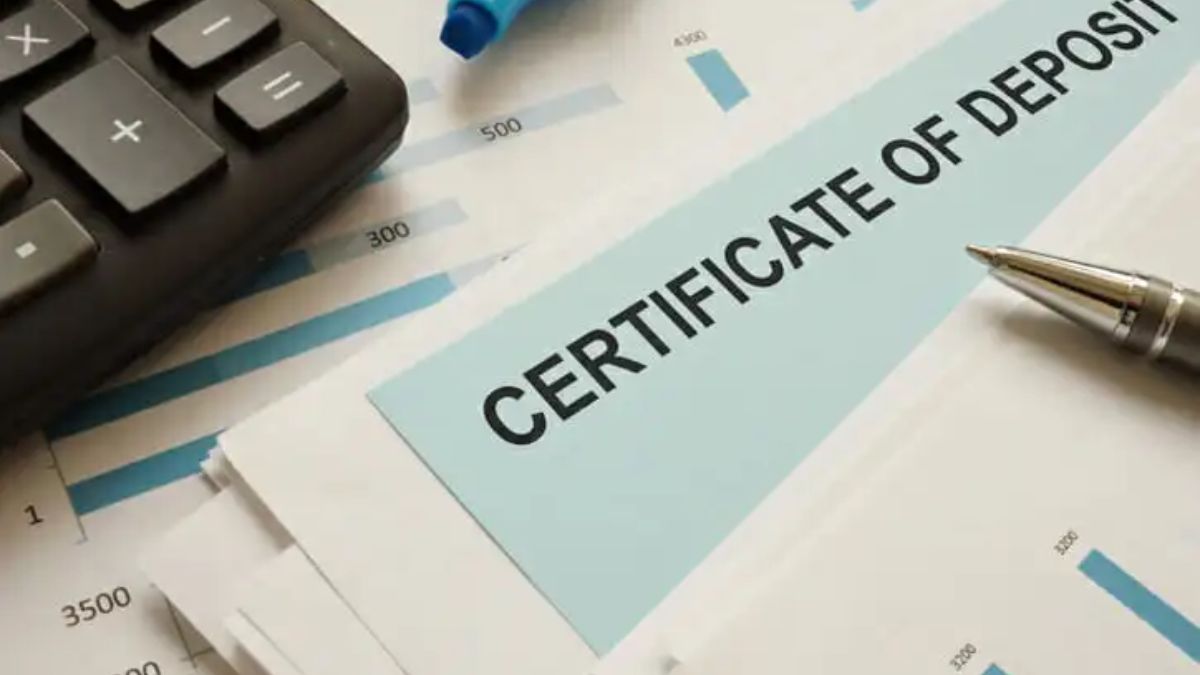In today’s uncertain economy, even modest amounts of savings can carry outsized importance. For millions of Americans, putting aside \$500 in August 2025 could mean the difference between having a financial cushion or facing hardship in the event of an emergency.
Recent surveys indicate that nearly 40% of U.S. households cannot cover a \$1,000 expense without borrowing, underscoring the urgency of building reserves. While traditional savings accounts still average less than 0.40% APY, savers are turning to Certificates of Deposit (CDs)—a safer and more rewarding option during times of fluctuating interest rates.
This month, CD rates remain well above historic averages, allowing individuals to lock in fixed returns before potential rate cuts later in the year. But how much can a \$500 deposit really earn in a CD, and how does it compare to other savings tools?
Earnings Potential for a \$500 CD in August 2025
The appeal of CDs lies in predictability. Unlike variable-rate accounts, CDs guarantee your earnings from the moment you lock in. Based on leading rates available this month, here’s what savers can expect if they deposit \$500 into a CD:
| CD Term | APY (%) | Maturity Value | Interest Earned |
|---|---|---|---|
| 3 months | 4.25% | \$505.23 | \$5.23 |
| 6 months | 4.28% | \$510.59 | \$10.59 |
| 9 months | 4.30% | \$516.04 | \$16.04 |
| 12 months | 4.40% | \$522.00 | \$22.00 |
| 18 months | 4.16% | \$531.52 | \$31.52 |
| 24 months | 4.10% | \$541.84 | \$41.84 |
| 36 months | 4.10% | \$564.06 | \$64.06 |
| 60 months | 4.15% | \$612.73 | \$112.73 |
For short-term needs, even a 3- or 6-month CD provides modest growth. Over the long term, however, a 5-year CD nearly adds \$113 in interest to a \$500 deposit—more than doubling what savers might expect from most traditional accounts over the same period.
Factors That Influence CD Earnings
Not all CDs are created equal. Several variables can affect how much your deposit grows:
- Term Length – Longer maturities typically generate higher interest totals, though not always the highest APYs.
- APY Rate – The most important factor, especially for smaller deposits like \$500. Even a fraction of a percentage can make a visible difference.
- Compounding Frequency – Daily compounding can yield slightly higher growth compared to annual or monthly compounding.
- Early Withdrawal Penalties – Accessing funds before maturity often results in penalties, sometimes wiping out earnings.
For first-time savers, understanding these trade-offs ensures the choice of a CD aligns with both immediate needs and long-term goals.
CDs vs. High-Yield Savings Accounts (HYSA)
While CDs offer guaranteed, fixed growth, high-yield savings accounts (HYSAs) remain popular due to their flexibility. Here’s how they stack up:
| Feature | CD | HYSA |
|---|---|---|
| Rate Type | Fixed for entire term | Variable, can rise or fall |
| Liquidity | Locked until maturity | Withdraw anytime |
| Penalty Risk | Yes, for early withdrawal | None |
| Best For | Savers who don’t need immediate access | Savers who prioritize flexibility |
For instance, if the Federal Reserve cuts interest rates later this year—as analysts predict—HYSAs could lose their advantage. CDs, meanwhile, would protect savers from market changes.
Why August 2025 Is a Critical Month for Savers
Financial experts are closely watching interest rate trends. After a period of high returns, the market is signaling potential rate cuts within the next six months. Locking in a CD now ensures today’s competitive APYs remain secure, regardless of broader market shifts.
For many, this makes August 2025 an advantageous entry point:
- Savers can lock in fixed yields as high as 4.4% on one-year terms.
- Those with longer horizons can earn over \$112 on a \$500 deposit in a 5-year CD.
- Shorter-term CDs still provide better returns than standard savings accounts without exposing money to volatility.
Who Benefits Most from CDs Right Now?
Certain groups stand to gain the most from CDs in today’s environment:
- First-time savers building an emergency fund.
- Retirees seeking guaranteed, low-risk income on small reserves.
- Households in rural or fixed-income communities who need stability rather than speculation.
- Parents saving for near-term expenses, such as education or family milestones.
The predictability and security of CDs make them especially attractive for those wary of market uncertainty.
The Bigger Economic Picture – What CDs Signal
The resurgence of CDs also reflects broader themes in the U.S. economy:
- Inflation pressures remain, but are softening, prompting speculation about Fed rate adjustments.
- Banks are competing harder for deposits, boosting promotional CD rates.
- Consumers are shifting toward shorter-term, guaranteed returns as stock and bond markets remain volatile.
For financial institutions, offering competitive CDs helps attract customer deposits, ensuring liquidity and stability. For households, CDs represent a return to traditional, disciplined saving habits in an era dominated by digital investing.
For those who value both growth and peace of mind, locking in a CD this month may be one of the smartest financial moves available.
5 FAQs
Q1: How much interest will a \$500 CD earn in August 2025?
A1: Depending on the term, earnings range from about \$5 on a 3-month CD to over \$112 on a 5-year CD.
Q2: Is a \$500 CD worth it?
A2: Yes. While the growth may seem small, CDs offer security, predictability, and better returns than standard savings accounts.
Q3: Can I withdraw early from a CD?
A3: You can, but early withdrawal usually comes with penalties that may reduce or erase your earnings.
Q4: How do CDs compare to high-yield savings accounts?
A4: CDs lock in fixed rates, while HYSAs provide flexible access but have variable rates that may drop if interest rates fall.
Q5: Should I open a CD now or wait?
A5: With potential rate cuts ahead, experts suggest locking in now to secure today’s higher APYs.







